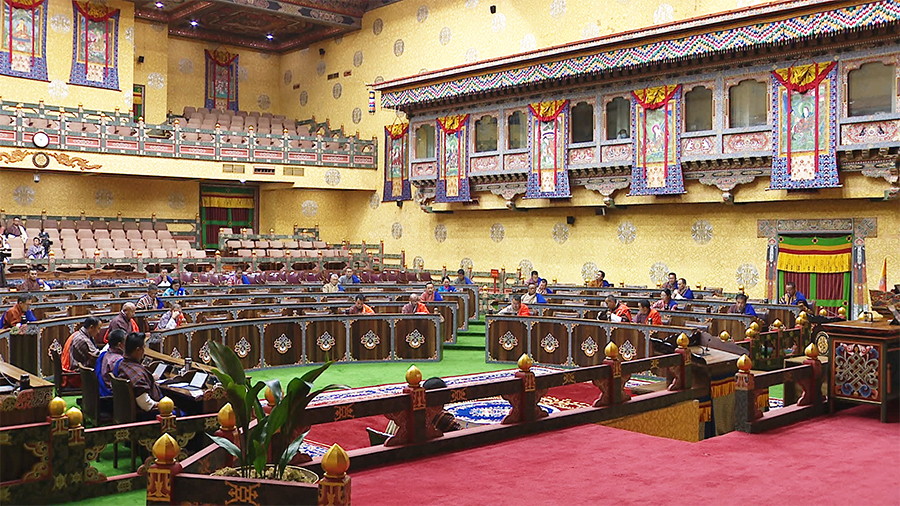
During the National Assembly session today, members reiterated the need for the Anti-Corruption Commission(ACC) to collaborate with the Election Commission to address election-related corruption during the upcoming National Assembly election. Members also asked if the ACC’s Integrity Assessment Certificate for aspiring candidates would really serve its purpose in curbing election-related corruption. These were discussed after the house’s Good Governance Committee presented the review report on ACC’s Annual Report 2022-2023.
Athang-Thedtsho’s Member of Parliament Kinley Wangchuk said that there was no clear response in the ACC’s report on how the commission is going to curb corruption cases during the upcoming election.
The House initially passed a resolution on the need for the ACC to initiate a collaborative effort to combat election-related corruption during the 8th session last year.
“Election-related corruption needs to be addressed before a government is elected because once a government is elected, it is possible that corrupt practices could continue emerging if people vote for the wrong party. For instance, in the ACC’s Annual Report, the ACC and the RAA have formed a Joint Investigation Committee. It would be beneficial if the same committee could be formed between the ACC and ECB as well,” said MP Kinley Wangchuk.
In response, the Good Governance Committee’s chairperson said that the ACC and ECB have already started discussions on how to work together to curb election-related corruption.
“Furthermore, the need for the aspiring candidates to produce an Integrity Assessment Certificate issued by the ACC is also one of the best measures to ascertain the integrity of an individual. The ACC has the onus whether or not to issue the certificate, so I think this is where the collaborative effort between the two commissions comes in,” said MP Tenzin, the chairperson of the Good Governance Committee.
Similarly, other members emphasised the need to curb corrupt practices during election stages, which will aid in a transparent and just governing body.
“I think the Integrity Assessment Certificate would be beneficial in combatting corruption, however, since the certificate is provided during the submission of the candidature and corrupt practices mostly happen during the campaign phases, there is a loophole in the procedure. So, I am sceptical if the certificate would really serve its purpose,” said Dawa, the MP for Chhoekhor-Tang constituency in Bumthang.
“If the ACC deploys representatives in the districts during the election period, it would help keep a check on possible corruption emerging in communities. The Integrity Assessment Certificate is only for the candidates but the general trend is that corrupt practices are usually committed by party workers and supporters who do not need to produce the certificate,” said MP Ugyen Wangdi who is also a member of the Good Governance Committee.
The House decided to once again forward the recommendation to the ACC with a show of hands.
Following extensive deliberations, the members voted in favour of endorsing all six recommendations made by the ACC and the Good Governance Committee.
Tashi Yangden
Edited by Kipchu







